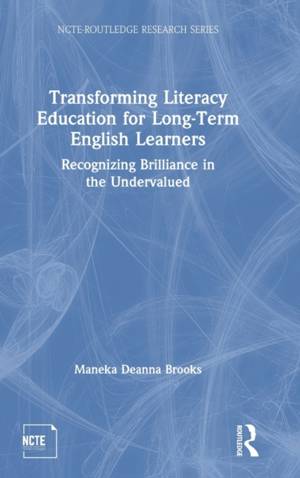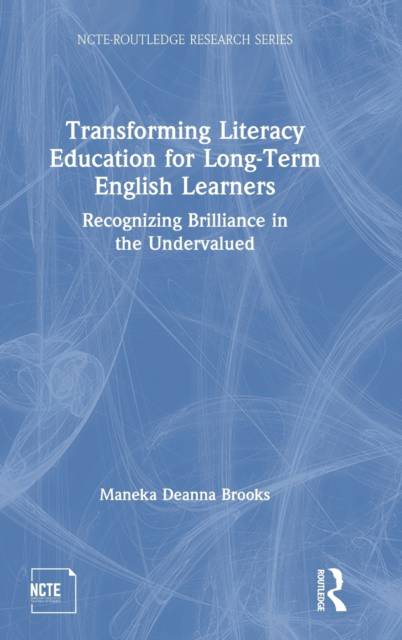
- Retrait gratuit dans votre magasin Club
- 7.000.000 titres dans notre catalogue
- Payer en toute sécurité
- Toujours un magasin près de chez vous
- Retrait gratuit dans votre magasin Club
- 7.000.0000 titres dans notre catalogue
- Payer en toute sécurité
- Toujours un magasin près de chez vous
Transforming Literacy Education for Long-Term English Learners
Recognizing Brilliance in the Undervalued
Maneka Deanna BrooksDescription
Grounded in research on bilingualism and adolescent literacy, this volume provides a much-needed insight into the day-to-day needs of students who are identified as long-term English language learners (LTELs). LTELs are adolescents who are primarily or solely educated in the U.S. and yet remain identified as "learning English" in secondary school. Challenging the deficit perspective that is often applied to their experiences of language learning, Brooks counters incorrect characterizations of LTELs and sheds light on students' strengths to argue that effective literacy education requires looking beyond policy classifications that are often used to guide educational decisions for this population.
By combining research, theory, and practice, this book offers a comprehensive analysis of literacy pedagogy to facilitate teacher learning and includes practical takeaways and implications for classroom practice and professional development. Offering a pathway for transforming literacy education for students identified as LTELs, chapters discuss reframing the education of LTELs, academic reading in the classroom, and the bilingualism of students who are labeled LTELs.
Transforming Literacy Education for Long-Term English Learners is a much-needed resource for scholars, professors, researchers, and graduate students in language and literacy education, English education, and teacher education, and for those who are looking to create an inclusive and successful classroom environment for LTELs.
Spécifications
Parties prenantes
- Auteur(s) :
- Editeur:
Contenu
- Nombre de pages :
- 112
- Langue:
- Anglais
- Collection :
Caractéristiques
- EAN:
- 9781138558106
- Date de parution :
- 05-12-19
- Format:
- Livre relié
- Format numérique:
- Genaaid
- Dimensions :
- 152 mm x 229 mm
- Poids :
- 344 g

Les avis
Nous publions uniquement les avis qui respectent les conditions requises. Consultez nos conditions pour les avis.






